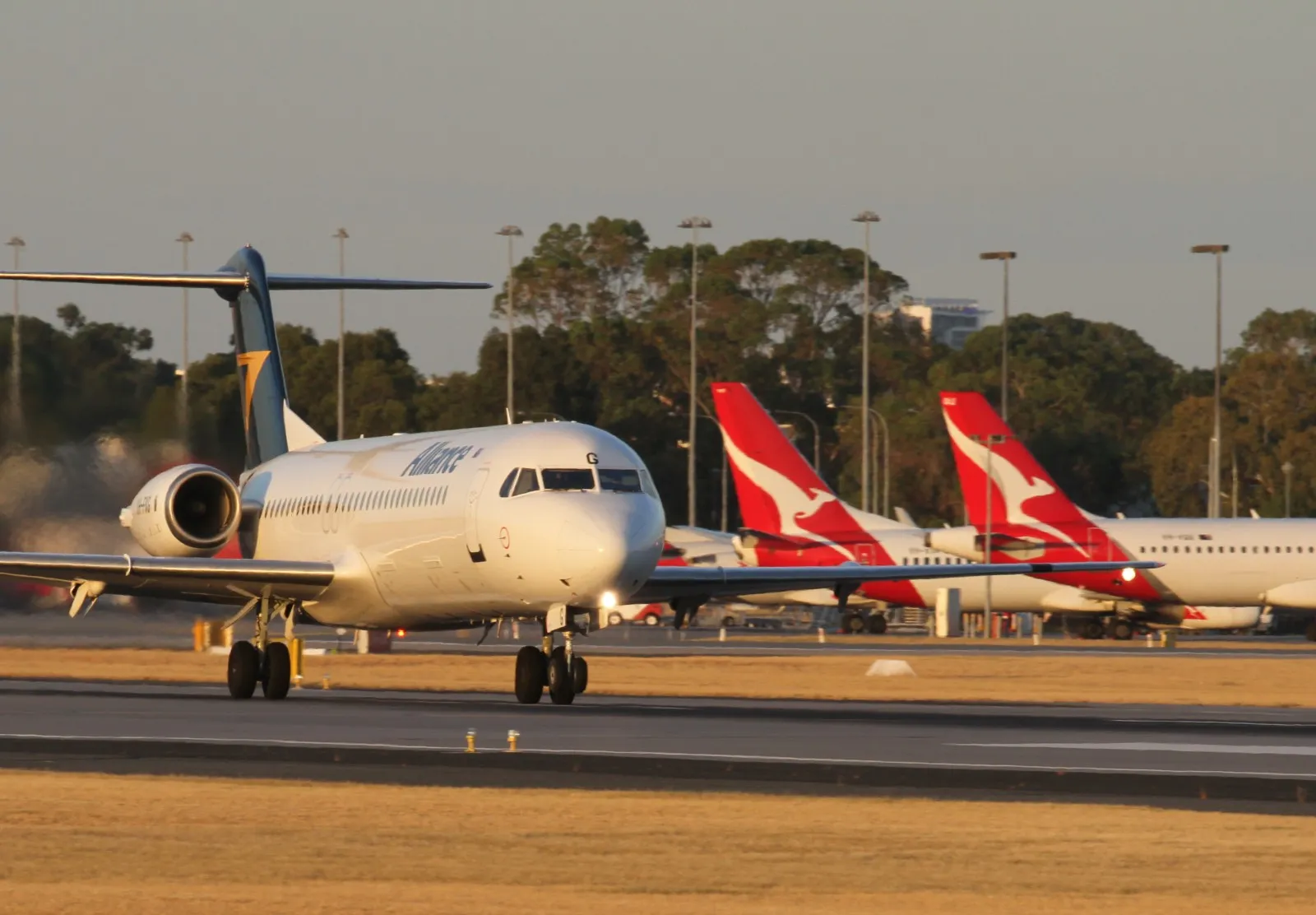
QANTAS: ALLIANCE MERGER WILL NOT DAMAGE COMPETITION
Aug 18, 2022

The recent merger between Qantas and its alliance partners has sparked discussions about its potential impact on competition within the airline industry. However, experts believe that this consolidation will not harm competitive dynamics. The alliance is expected to enhance operational efficiency and expand service offerings, ultimately benefiting consumers through improved connectivity and travel options. Additionally, the presence of multiple carriers in the market ensures that competition remains robust. Regulatory bodies are closely monitoring the situation to maintain a fair playing field, emphasizing that strategic partnerships can coexist without undermining market competitiveness.
Understanding the QANTAS Alliance Merger
The recent merger of QANTAS with its strategic partners has raised questions about the potential impacts on competition within the aviation industry. However, industry experts believe that this alliance will not damage competition but rather enhance service offerings for customers. This article delves into the implications of the merger, examining its potential benefits and addressing concerns regarding market competition.
Benefits of the QANTAS Alliance Merger
One of the primary advantages of the QANTAS alliance merger is the ability to streamline operations, which can lead to cost efficiencies. By consolidating resources and sharing operational costs with partner airlines, QANTAS can offer competitive pricing for consumers. This cost-saving strategy is vital in an industry where fuel prices and other operational expenses fluctuate significantly.
Moreover, the merger allows QANTAS to expand its route network. By collaborating with other airlines, QANTAS can provide passengers with access to a broader range of destinations without the need to operate additional flights independently. This enhances customer convenience and can stimulate demand for air travel.
Impact on Air Travel Competition
While concerns about reduced competition often arise in discussions of airline mergers, it is essential to analyze the market dynamics. In this case, the QANTAS alliance merger is likely to foster a more competitive environment. By forming strategic partnerships, QANTAS can better compete with other major airlines that operate in the Asia-Pacific region and beyond.
Furthermore, the merger does not eliminate competitors; instead, it pushes airlines to innovate and improve their offerings. As QANTAS and its partners enhance their services, other airlines may feel compelled to match these improvements, leading to an overall increase in quality for consumers. This competitive pressure can result in better customer service, improved flight experiences, and more attractive pricing structures.
Consumer Advantages of the QANTAS Merger
Passengers stand to gain significantly from the QANTAS alliance merger. With increased connectivity and more flight options, travelers can enjoy greater flexibility when planning their journeys. For instance, through codeshare agreements, customers can book a single ticket that includes multiple airlines, making travel more seamless.
Additionally, loyalty programs are likely to benefit from the merger. Frequent flyers can accrue points across a more extensive network, providing more opportunities for upgrades and free flights. This enhancement of loyalty programs is a crucial factor that can influence a consumer's choice of airline, promoting customer retention.
Addressing Regulatory Concerns
Regulatory bodies play a critical role in ensuring that airline mergers do not harm competition. The QANTAS alliance merger has undergone scrutiny to ensure compliance with antitrust regulations. Regulators assess the merger's potential impacts on market share, pricing, and consumer choice. Given the robust competitive landscape in the aviation sector, it is unlikely that the merger will lead to monopolistic behavior.
Moreover, the presence of low-cost carriers and regional airlines remains a strong counterbalance to QANTAS's market power. These airlines continue to provide affordable options, ensuring that consumers have choices even as larger players consolidate their operations.
Market Trends and Future Prospects
The aviation industry is continually evolving, and strategic alliances are becoming increasingly common. QANTAS's merger reflects a broader trend where airlines seek partnerships to enhance their competitive edge. As travel demand rebounds post-pandemic, airlines that leverage alliances will likely be better positioned to respond to dynamic market conditions.
The future of QANTAS in the context of this merger appears promising. By focusing on customer experience, operational efficiency, and strategic partnerships, QANTAS is set to maintain its status as a leading airline in the region. This commitment to excellence will likely mitigate any adverse effects on competition, reinforcing the notion that the merger is a strategic move rather than a threat to market dynamics.
Conclusion
In summary, the QANTAS alliance merger is poised to enhance competition rather than diminish it. By creating synergies with partner airlines, QANTAS can offer more competitive pricing, improved service offerings, and expanded routes for travelers. With regulatory oversight in place and a vibrant competitive landscape, consumers can look forward to a thriving aviation market that prioritizes their needs.
As the industry continues to adapt, the QANTAS merger will serve as a case study in how alliances can lead to innovation and improved customer experiences while maintaining a healthy level of competition within the aviation sector.
Related Articles

Explore Thailand: The Best Islands to Visit for Paradise, Adventure, and Relaxation

The Ultimate Guide to the Best Islands in Thailand for Your Next Getaway

Do babies need passports? How to get a passport for a newborn

How to get a U.S. passport fast: here’s how to expedite the process

What is Mobile Passport Control: 5 reasons why you should use it

SENTRI vs. Global Entry: A detailed guide

Do you need a passport to go to the Bahamas? Let’s find out

Do you need a passport to go to Mexico? A detailed guide

Do you need a passport to go to Canada? We got the answer

Do You Need a Passport for a Cruise: An Essential Travel Guide

Booster Seat Requirements: All the Rules to Follow in Your Rental Car

What Are the World’s Most Powerful Passports, and How Does Yours Rank?

How to Take a Passport Photo at Home: A Helpful Guide

You've got to have heart! Southwest's new livery

Your opinion: Should water be free on low cost carriers?

Young women bolder than guys as solo travellers
